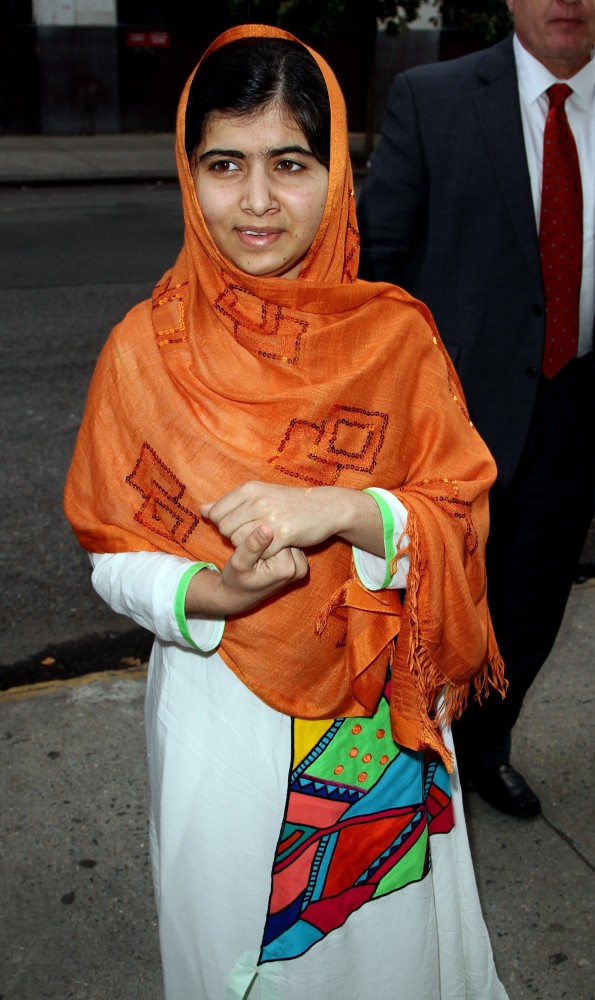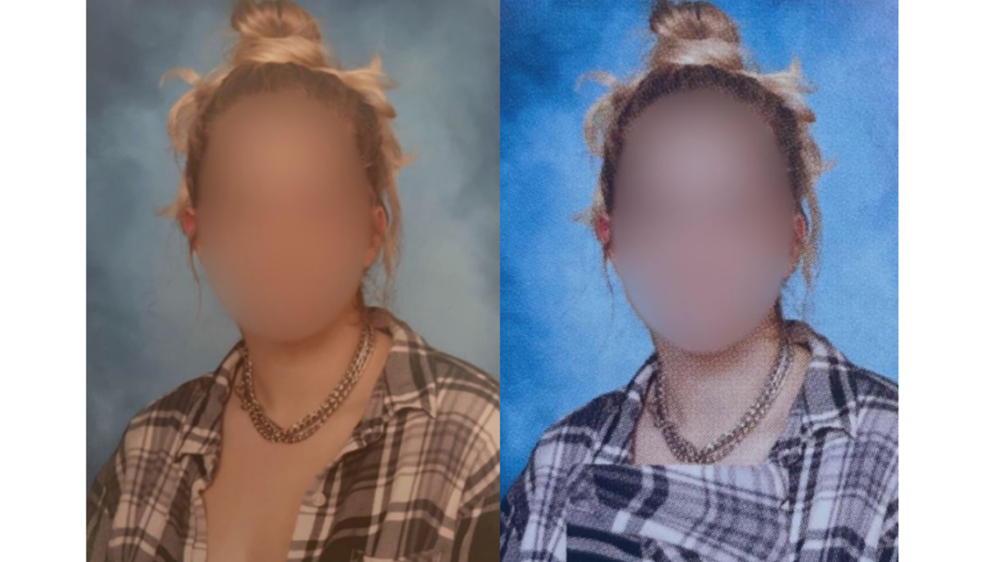By Maria Panaritis
The Philadelphia Inquirer.
Malala Yousafzai held a ballroom full of people rapt Tuesday as she spoke about her remarkable life. But do not think for a moment that the 17-year-old Nobel Peace Prize winner can catch a break at her high school.
True, the Pakistani teenager accepted the Liberty Medal and was a headliner at the Forbes Under 30 Summit, both in Philadelphia on Tuesday.
And she would then jet up to Canada to meet with Prime Minister Stephen Harper on Wednesday and receive honorary citizenship — an honor bestowed only on a handful of global humanitarians, including Nelson Mandela.
But when Yousafzai missed an English assignment recently, slack was in short supply at the school in England where she has studied since being shot in the face two years ago by Islamic extremists in her native country who deeply resent her advocacy for the right of Pakistani girls to pursue an education.
“Where is your homework,” her teacher asked a few days after she learned — while fretting about a chemistry exam — that she had been awarded the peace prize.
“I won the Nobel Prize. I was quite busy,” Yousafzai replied, in an anecdote among many she would share with the Convention Center crowd.
Her instructor’s reply:
“So what?”
The ballroom filled with laughter at the example of Yousafzai’s two lives — the ordinary one of a teenage girl with brothers who tease and torment, and the extraordinary one as an activist of global repute and ambition.
Though possessing a diminutive build and a low-key oratorical manner that projected substance over flash, she was a big draw, speaking to a packed crowd of young entrepreneurs sitting at banquet tables and about 50 teenage girls from across Philadelphia seated on the ballroom’s floor.
The teenagers had met with their peerless peer at a private gathering just before the Forbes event, and gushed about being inspired.
“I told her, ‘Can you come to our school personally, so other girls can be inspired?’ ” said Ebtisam Bibi, 17, who with three other cousins from Pakistan traveled in all-black burkas from Philadelphia High School for Girls to meet Yousafzai and her father in the cozy one-on-one arranged by the city’s Youth Commission.
“She got shot and she didn’t give up,” said Saima Ali, 17, another Girls High senior, who with the foursome emigrated from the same Swat Valley region in northern Pakistan where Yousafzai lived before she was shot on Oct. 9, 2012, while riding a bus to school. Afterward, her family moved to England.
“She made us realize we should never give up. We should fight for our rights,” added Bibi, whose father was a childhood classmate of Yousafzai’s father, Ziauddin — a topic that came up when they all met Tuesday.
To Bibi, attending school in Philadelphia has brought the kind of freedom of expression and dress that is absent in the Swat Valley, where cultural expectations and religious extremists vying for power have declared war on the proposition that girls should be able to aspire to being anything but homemakers with little or no schooling.
Other Philadelphia girls who met Yousafzai noted a matter of exquisite timing. Some of the students meeting her have been active in protesting the large funding cuts that have thrust Philadelphia’s schools into a years-long crisis.
“She was an eye-opener,” Science Leadership Academy senior Amy Chen, 18, said minutes after meeting with Yousafzai.
In the view of Chen, who has helped protest school closures and other cuts to programs, Yousafzai embodies this message: “Stand up for yourself. Stand up for your rights. Don’t let anybody discourage you.”
The question-and-answer conversation with media personality Ronan Farrow at the Convention Center took place before the Liberty Medal ceremony at the National Constitution Center.
There were few topics untouched in Malala’s Forbes remarks, a relatively unstructured 42-minute exchange that touched on everything from ongoing spats with her little brother — they squabble over why he spends so much time on the computer when he could be studying — to disappointment that schoolgirls kidnapped by terrorists in Nigeria remain in captivity despite a visit by Yousafzai to the African state.
Farrow asked Yousafzai to elaborate on a meeting she and her father had with President Obama, during which she pointedly questioned his antiterrorist policy of deploying drones. Yousafzai did not offer specifics about Obama’s response, despite efforts by Farrow to extract them.
She explained, however, why she believes aggressive policies are doomed to fail.
“Instead of sending guns, send books,” Yousafzai said. “Instead of sending weapons, send teachers.”
When asked about the day she was shot, Yousafzai lingered little on the matter, saying only that she remembered talking to a classmate about a forthcoming exam. Next thing she knew, she was in a hospital in a foreign country, she said.
And while the teenager spoke with poise about her and her family’s courage during the period of Taliban fighting and aggression in their midst, she revealed a vulnerability when asked how her mother had been faring.
“She has cried a lot,” Yousafzai said. “She has always prayed for me.”
Her mother had very little schooling as a child, she said. But as a result of Yousafzai’s desire to promote education globally — a mission embraced by her family — that is changing. Her mother has enrolled in some classes.
“She has started going to school and she is learning every day,” the teenager said.
Which, in the end, “gives me more courage,” she said. “Gives me strength.”
















































































































































































































































































































































































